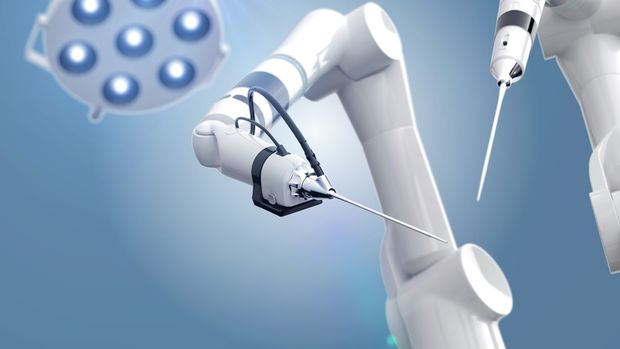The American Cancer Society estimates that nearly 80,000 adults will be diagnosed with bladder cancer in the United States this year. Depending on the stage of bladder cancer and other factors, there are different treatment options. Commonly; surgery to remove part, or all, of the bladder may be recommended, which is called a cystectomy.
One of the most innovative approaches for the removal of part, or all, of the bladder due to bladder cancer is through a minimally-invasive robotic cystectomy. While this procedure has traditionally been performed using an open surgical method, advancements in technology now allow this procedure to be performed with the help of a robotic surgical system. It is quickly becoming the preferred method for bladder cancer surgery.
This procedure utilizes the da Vinci® Surgical System where your surgeon manipulates a robotic arm in order to amplify their precision. Robotic cystectomy offers bladder cancer patients the prospect of a more effective surgery with less problematic post-surgical recovery. This minimally-invasive robotic procedure allows the surgeon to make smaller incisions which spare vital, but delicate, nerve and muscle tissue.
Robotic cystectomy has multiple patient advantages:
- Improved Precision - Through the 3D high-definition view, provided by the da Vinci robot, your surgeon has a better view of your tissue. This allows for very delicate dissection and suturing. Robotic cystectomy procedures have shown a higher cancer removal rate compared to traditional surgery.
- Extensive Lymph Node Dissection — In radical cystectomy, full removal of the bladder and lymph nodes is an integral part of the procedure for both therapeutic and diagnostic purposes. By utilizing the da Vinci surgical robot, with its increased range of motion, urologic oncologists can accomplish an extensive lymph node dissection.
- Less Blood Loss Than Open Surgery — Since less blood is lost during the procedure, fewer blood transfusions are needed. Patients experiencing open surgery can experience five times the blood loss compared to a minimally-invasive robotic surgery.
- Decreased Pain & Minimal Scarring — A robotic cystectomy is performed through a series of small keyhole-sized incisions across the abdomen, which is less painful, heals faster, and produces significantly less surface scarring than the larger incision associated with open surgery.
- Fewer Complications — Open surgery patients experience four times the risk of complications and increased chance of infection compared to a robotic patient.
The conditions which may warrant a cystectomy are complex, and you should consult your urologist to consider your best treatment options. da Vinci® robotic cystectomy is one of the newer minimally-invasive techniques and has been very successful, when used appropriately. Ultimately, only you and your surgeon can decide if robotic cystectomy is the best treatment option.
If you have been diagnosed with bladder cancer, or want to understand other treatment options, consider a second opinion with DuPage Medical Group. For more information, please call 630−790−1221.
Health Topics:

